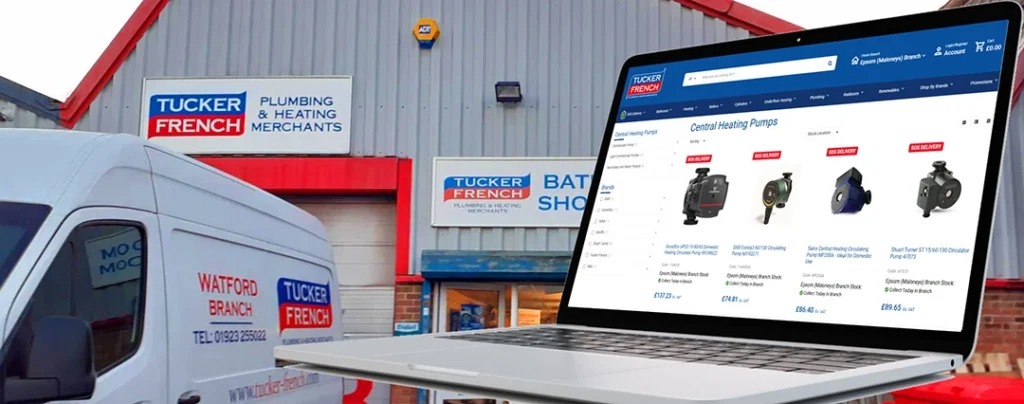Over the last few years, there has been a great revolution in the financial services sector with FinTech innovations accelerating the digital transformation. FinTech (Financial Technology) describes new technology designed for financial services and banking that are transforming the way business was traditionally done. For instance, digital transformation in financial services has led to revolutionary payment systems. This has happened all over the world and brought disruptive, improved solutions where automation plays a central role, such as:
- Payment processing;
- loan application;
- mortgage application; and
- statement issuance.
The automation provided by FinTech innovations is key to achieve business process transformation and stay ahead of the competition. The convenience that automated processes offer makes it easy for any customer to embrace. Financial services organizations that implement automation in service delivery make customer satisfaction a priority. And that’s the easiest way to remain on top of your game.
This article will explore digital transformation in financial services and banking led by FinTech. It will also look at how to use financial technology and automation to successfully transform business processes like mortgage application and statement issuance, and reap the benefits of increased productivity, reduced costs and improved customer satisfaction.
Digital Transformation in Financial Services
The financial services landscape has been dramatically transformed by technology. In a very short time, FinTech has redefined how people view banking and financial transactions.
Rather than being another way through which financial transactions are done, FinTech innovations have become the mainstream means of making financial services more inclusive and accessible. And both customers and financial services providers benefit.
For customers, digital technology and automation provide ease of access to financial information and services such as credit score, mortgage line of credit, loan and mortgage applications, etc. Customers today do not need to visit the bank for any transactions. From the comfort of their home, they can easily make any banking transaction, even those that typically involved stringent processes like applying for a mortgage.
The digital transformation in financial services brings more options that make access to funds, credit and loans easy and convenient, which produces happy customers.
For financial services providers, digitized, automated solutions are a significant channel to reach and retain customers of any demographic and financial situation. They also free up operators and clerks to work on productive, revenue-driving tasks as day-to-day transactions are executed by customers themselves, reducing cost of operations.
How Automation Transforms Business Processes
Business process transformation refers to the steps required in implementing digital processes within an organization. Such implementation impacts business procedures and allows companies to reach new goals, whether it’s increased productivity, enhanced security or better customer retention.
Improving on traditional methods of delivering financial services involves:
- The modernization of processes;
- incorporation of new technology; and
- automation.
In fact, automation is a critical way of achieving business process transformation. Automation of business processes is the use of digital technology to carry out tasks that were typically manual and repetitive. As a result, automation offers excellent service delivery and meets the customers’ needs more satisfactorily and conveniently. And financial services providers can make a greater impact when they know how to serve customers better.
A common example of automation in financial services is ATMs. With this innovation, banks were able to replace tellers with interactive machines that could work round the clock with minimal maintenance or supervision. It reduced costs for financial services organizations and was convenient for customers.
Mortgage application and statement issuance are other examples of business processes where digitalization and automation bring significant benefits.
Mortgage Application
Leveraging modern document generation and document automation technology like Experlogix Document Automation, financial services organizations can use intelligent web forms to implement online mortgage applications, eliminating manual and paper-based processes.
In an interactive web form, customers fill out their information, guided by clickable definitions and warnings to ensure they provide all required information the first time. A mortgage payment calculator can be embedded in the form, allowing customers to compare payments and choose the right option for their unique situation.
When the form is completed, the data captured is automatically added to associated mortgage application documents generated in PDF format. The documents are sent to customers for electronic signatures, and then to the financial services provider for approval, accelerating the completion of the mortgage application process.
Statement Issuance
Experlogix Document Automation also allows to easily create financial statements that combine both standard, regulatory wording and variable data pulled from a connected internal system. Dynamic data fields in the statement documents automatically incorporate customers’ personal and account information – name, address, account numbers, etc.
Tables presenting detailed account activities such as deposits, withdraws and interests over a pre-defined period can be added to financial statements. These documents can also include calculations based on monthly or annual deposited amounts to estimate customers’ portfolio or savings growth; the results can be displayed in a bar chart for a visual snapshot.
Capabilities brought by modern solutions like Experlogix Document Automation empower financial services organizations to quickly assemble and issue highly personalized, accurate and relevant financial statements.
The innovative introduction of automated business processes helped financial services not only increase productivity, minimize errors and reduce cost of operations, but also break new ground with the use of technology to better communicate, interact and serve customers. This comes with greater inclusion and satisfaction to the greatest number of people.
Automation and Innovation for Today and Tomorrow
Today, accessing financial services has never been easier. Digitalization and automation in financial services facilitate access to a variety of services – payment notices, loan and mortgage applications, statement issuance, and more – that make customers’ lives better.
There is growing innovation and new ways of doing business every day. As a result, financial services providers must always be willing to invest in new technology and software. And thus be at the forefront of digital transformation.
With the COVID-19 pandemic that redefined business processes worldwide, many companies had to readjust and accelerate the spend on technology. It was, therefore, no coincidence that the organizations that had completed a business process transformation supported by automation had more gains. The difference between successful organizations and others is that they had started their digital transformation: they were investing in innovative software and revolutionizing traditional business processes. Many companies closed shop, not because of stringent lockdowns but a fragile digital backbone.
For organizations in financial services and banking, embracing FinTech innovations is critical to succeed in their business process transformation. If your financial services organization is to compete in this new disruptive world, it must be innovative. There’s only one way to achieve that: with automation that accelerates business processes and delivery of services to customers. You’ll improve customer satisfaction, increase productivity and drive business growth. In this area, a document generation and document automation software like Experlogix Document Automation comes in handy.
Reference Articles
https://www.fingent.com/blog/digital-transformation-in-financial-services-all-you-need-to-know/
https://www.bdo.com/insights/industries/financial-services/digital-transformation-in-financial-services











